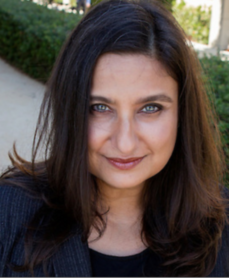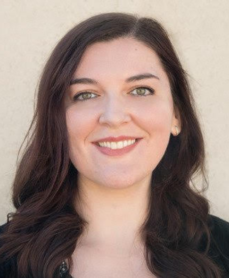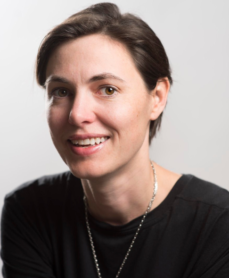
Affiliation: Lucidify, CEO
Other Affiliations:
Chair in Neuroscience & Faculty in Medicine, Singularity Group
Senior Nonresident Fellow, Atlantic Council GeoTech Center
Medical Advisor, Extended Reality Safety Initiative
Staff Anesthesiologist, Alameda Health System & San Mateo Medical Center
Title: Digital Health, Medical XR, and Hacking Humans – New Solutions for CyberHealth
Abstract:
Digital health and associated spheres like medical extended reality, wearables and implantables, provide new opportunities for extended healthcare access and medical training to a wide swath of the population. Further, pandemic resilience requires the creation of integrated warning systems that can collect and integrate sensitive data at the edge. In many cases, the data collected passively and actively by devices at the edge include biometrics and biometrically-inferred data – the most sensitive data we own. User identification, authentication, data collection, storage, and connectivity on both decentralized and aggregated networks create new threat landscapes that are exacerbated by key edge vulnerabilities. In this talk, we explore some of this new risk landscape, as well as new network solutions and frameworks that provide means for user-centric control, security, and privacy, which will revolutionize both cyberhealth networks as well as edge-based user interactions with Web 3.0 and the metaverse.
In this talk, you will learn:
1. how to think about the dizzying new array of data collection types and data producers that can be used for intelligent healthcare;
2. how health and wellness shifted into the commercial market create new opportunities for monitoring, wellness, and risk;
3. how interactions between biometrics and commercial endeavors, including Web 3.0 and the burgeoning metaverse, create new opportunities and biometric risk;
4. how humans can be literally hacked and subject to ransomware, much as machines and software;
5. how future internet architectures and exponential thinking might enhance cybersecurity and user-centric control at the network’s edge.
Biography:
Dr. Divya Chander is a physician, neuroscientist, and futurist who trained at Harvard, UCSF, UCSD, and the Salk Institute. She is currently the Chair of Neuroscience and Faculty in Medicine at Singularity University. She is also a Visiting Scholar in the Stanford Department of Medicine, Biomedical Informatics, and was a member of the Stanford Anesthesiology Faculty for 8 years. Her postdoctoral training Stanford (Deisseroth/de Lecea Labs) allowed her to use light-activated ion channels inserted in DNA (optogenetics) to study sleep and consciousness switches in brains. In the operating room, she applies EEG technology to understand what human brains and the underlying networks look like when they lose and regain consciousness. She also has a precision medicine initiative focused on understanding genetic variability in responses to anesthetic drugs and brain oscillations. Her goal is to understand neural mechanisms of consciousness, as well as the evolution of human consciousness secondary to human augmentation.
She is working on devices that read and write the brain (brain mapping, neuromodulation) and link to brain machine interfaces for diagnostic and therapeutic purposes.
Her work also crosses into studies of human longevity. There is no extended human lifespan without the preservation of the brain and mind. How do technologies like brain machine interfaces, human augmentation and cryonics affect the future of human consciousness?
Divya also works in the field of space life sciences. A finalist for astronaut selection and an alumnus of the International Space University, she has performed remote simulations of trauma rescues, anesthesia and surgery in Mars analogue settings with physicians in the US, France, and the Concordia base in Antarctica. She has also been involved with a consortium that elaborated a road-map for studying the effect of microgravity and radiation on the nervous system, cardiovascular system, cognition and sleep.
Speaker: Roger Clarke – Pre-record

Affiliation: Xamax Consultancy
Other Affiliations: Australian National University – Computer Science / UNSW Law
Title: Consumer-Oriented Social Media – Key Features, What’s Held It Up, How We Get It
Prerecorded Talk: to view this talk click here.
Abstract:
We’ve all long known that that consumer-orientation depends on features of Distributed Architecture, Interoperability and Portability, and suitable Terms of Service and Privacy Policies. It’s also been apparent that, at least during the years of transition, business models are challenging. Innovators need all the usual encouragement at start-up and scale-up levels, but they also need support to achieve the ‘network effect’ breakthrough. The will has been shown, in Australia, the EU and the USA, to impose regulatory measures on technology platforms in relation to content such as child porn, defamation, hate-speech, and false news, and even to apply labour laws. What the consumer-oriented social media innovators need is for the norms of competition and anti-trust laws to be imposed, and requirements enforced in the areas of interoperability and portability.
Biography:
Roger Clarke is a consultant in strategic and policy aspects of disruptive information technologies. He has over 50 years’ experience in the IT industry, as a professional, manager, consultant and researcher. He is a longstanding Fellow of the Australian Computer Society and the international Association for Information Systems. His degrees are from UNSW in Sydney and ANU in Canberra. He has held Visiting Professorships in Wirtschaftsinformatik in Switzerland and in Austria, and in the Engineering Faculty at the University of Hong Kong. He continues as a Visiting Professor in Computer Science at ANU, and in Law at UNSW. He has also spent over 30 years on the Board of the Australian Privacy Foundation
Speaker: Zeenath Reza Khan – Pre-record

Affiliation: Assistant Professor, University of Wollongong in Dubai (UOWD)
Title: Post-pandemic iGen and Alpha behaviours on social media – the good, the bad, and the ugly
Abstract:
Safety in the digital space is a multi-faceted concept which is often misunderstood or mismanaged. iGens and Alphas are digital natives working on and experimenting with technology, which is more a second nature to them; particularly social media platforms their home away from home. Lack of understanding, role models and guidelines on use lead to not only immediate health issues for the child, but pave the way for a divergent, and convoluted understanding of right from wrong. This talk promises to sift through some critical issues with over indulgence by students in technology use, and how these may be transpiring into life-changing and sometimes threatening societal habits, with recommendations from a longitudinal study on how to foster healthy digital habits in igens and alphas.
Biography:
Zeenath is the Founding President and Board Member of the Centre for Academic Integrity in the UAE, Assistant Professor of Responsible Information Systems at Faculty of Engineering and Information Sciences, and Program Director for Freshman Pathway Programs at University of Wollongong in Dubai. She has been teaching in the Faculty of Engineering and Information Sciences at the university since 2001.
Zeenath is an Audit Board Member for European Network for Academic Integrity and Local Advisory Board Member of Our Own High School Al Warqa UAE (GEMS Education). Zeenath is passionate about her students’ learning experience and has conceptualized many teaching innovations such as the Responsible Business and IT Use Vlogs Program (ReBitVlogs) which won two Council for Australia-Arab Relations grants as a student exchange program between UOW and UOWD; and more recently her work on WISP Human Libraries and Program has gained traction with 33 alumni members supporting current students as mentors for various subjects.
Zeenath currently holds the position of Editorial Board Member for International Journal for Educational Integrity, and edited book series from Springer on Ethics and Integrity in Education. Having received several internal and external grants from UOWD, UOW and other entities, Zeenath is a national and international award-winning academic with more than 80 publications to her name and an edited book titled Integrity in Education for Future Happiness (2021). Considered a Tier one speaker, Zeenath’s research interests are in academic integrity, ethics in IT, teaching and learning, and STEM for girls. In 2021, Zeenath was recognized for her research contribution by European Network for Academic Integrity as the recipient of their ENAI Research Excellence Award.
Speaker: Faheem Hussain – Pre-record

Affiliation: Arizona State University
Title: Digital Sovereignty, Changing Governance, and our (Future) Identity – Perspectives from our Deceased Users
Abstract:
Who is a citizen in our present world? Who defines such identity? Are the physical geopolitical boundaries inclusive enough to address the changing challenges of human identities? What will be the role of digital services in future governance? How is the new world shaping up in the backdrop of the metaverses, crypto-currencies, online funerals, and Zoom-centered rituals? In this talk, the author explores such questions and sheds light on the need of reimagining human identity for a better, just, and equitable future.
Biography:
Dr. Faheem Hussain is an interdisciplinary researcher with expertise in Information and Communication Technology (ICT), Global Development, Human Displacement, and Public Policy. Faheem is currently working as a Clinical Associate Professor in the School for the Future of Innovation in Society (SFIS) at Arizona State University. He received his Ph.D. in Engineering and Public Policy from Carnegie Mellon University. Faheem’s current research projects involve impact and innovation analyses of digital communication platforms for Rohingya refugees; formulation of online education strategies for resettled Afghan refugees; and development of an inclusive digital afterlife ecosystem for the global south.
Speaker: Nicole Stephensen – Pre-record

Affiliation: IIS Partners
Title: On giants: privacy redux
Abstract:
Nicole Stephensen considers privacy as we move through the 4th Industrial Revolution, where our vantage point is beneath the feet of digital, tech and social media Giants. What are the privacy challenges? And where are the opportunities to innovate for better privacy outcomes?
Biography:
Nicole’s privacy career spans more than two (2) decades, and she is widely recognised for her extensive local and international expertise in operational and strategic privacy matters. Her frank, candid and practical approach to privacy has established her as a trusted advisor and thought leader in the industry.
Her boutique consultancy (Ground Up Consulting) has recently merged its privacy services functions with IIS Partners (IIS), a world-class privacy and cybersecurity firm. As Partner at IIS, Nicole’s focus is on capacity building – that is, enhancing organisational knowledge and practice around privacy and the protection of personal information.
Nicole is an active mentor for privacy and cybersecurity professionals and is a sought after international speaker on matters of privacy and the intersection with security, risk management, trust and good decision-making. She is a subject matter expert for tertiary course curricula and regularly appears as a guest lecturer.
In both professional and volunteer capacities, Nicole supports academic and practical privacy discourse in relation to smart cities, IoT/ IIoT and public interest technologies. She is active in the area of digital policy affecting young people – including online privacy, security and cyber bullying. She holds the Smart Cities and Critical Infrastructure Security Professional (SCCISP) designation and is a Fellow of the Australian Information Security Association (FAISA).
Nicole is an IAPP KnowledgeNet Chair for Queensland (Brisbane/ Gold Coast). She was also a founding Board member for the Australia and New Zealand region’s privacy industry membership association (iappANZ, now part of the larger IAPP), where she sat for three consecutive terms on the Board. She is an active member of the Smart Cities Council of Australia-New Zealand (SCCANZ), where she is on the Advisory Board for the Centre for Data Leadership.
Speaker: Elma Hajric – Pre-record

Affiliation: Arizona State University
Title: Digital Privacy and the ‘Smart’ Campus
Abstract:
University campuses are increasingly adopting digital tools and interfaces such as apps aimed at providing safety, connections, and resources. These are implemented alongside innovative ‘Smart’ Campus deployments that increase surveillance and challenge privacy, especially if the physical surveillance structures are combined with student apps through sensors on a single network. This talk will provide an overview the ecosystems of surveillance on campus and potential challenges to privacy in the ‘smart’ campus setting.
Biography:
Elma Hajric is a researcher in the Human and Social Dimensions of Science and Technology PhD program at the School for the Future of Innovation. Her work focuses on data governance of emerging technologies, centering surveillance and privacy, alongside ‘smart city’ sociotechnical imaginaries. She is also a National Science Foundation Fellow in the National Research Traineeship on Citizen-Centered Smart Cities and Smart Living, and a member of the Science, Policy, Engineering Collective in the Institute for the Future of Innovation at Arizona State University.


